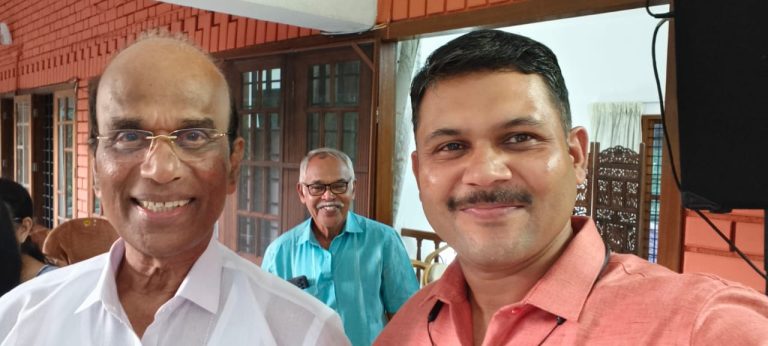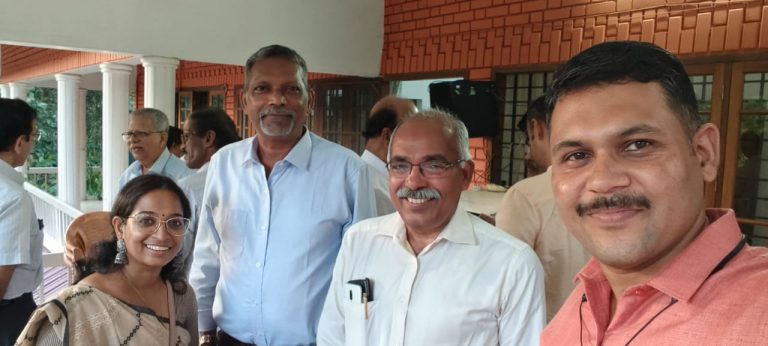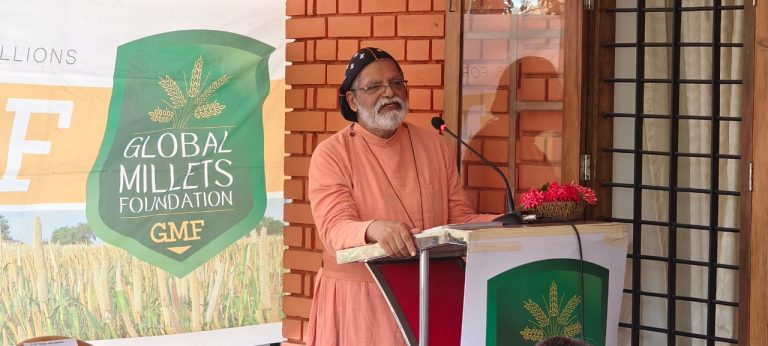
Invitation to First Combined Meeting of Governing Board and Executive Core Group
174th Seminar of the Global Millets Foundation & Sustainable Development Forum
(Prepared by Dr. V. Shivaprasad with inputs from Ms. Mary George, Mr. M.P. Raju, and Dr. P.O. Abraham. Dated 24th August 2025 – Sunday)
Seminar Overview
The 174th Seminar was chaired by Prof. Dr. Mathew Abraham, Executive Chairman of GMF, and inaugurated by His Grace Dr. Thomas Athanasius, Senior Metropolitan. The keynote address was delivered by Dr. P.E. Abraham, an internationally renowned wellness expert.
Dr. K.M. George, Secretary-General of the Global Millets Foundation and CEO of the Sustainable Development Forum, welcomed the distinguished guests, introduced the keynote speakers—Dr. P.E. Abraham and Dr. (Mrs.) Susan Abraham—and moderated the proceedings.
Summary of Proceedings
1. Healing the Natural Way with Millets
Dr. Abraham emphasised that most modern diseases arise from poor dietary habits and lifestyle choices. He stressed that food is the primary determinant of health or illness.Key recommendation – Intermittent Fasting:
• Avoid food after 4:00 PM until the next morning (approx. 14 hours).
• Resting the digestive system allows the brain to function better, improves memory, and prolongs healthy living.
He drew parallels between the digestive cycle and the sun’s rhythm, highlighting that eating late at night disturbs systemic balance and may harm intestinal health.
2. Naturopathy and Natural Treatments
Dr. Abraham underlined simple natural methods for self-healing:• Hip Bath: Beneficial for prostate enlargement and kidney disorders.
• Water Enema: Cleanses the intestines and improves systemic function.
• Wet Packs: Assist in detoxification and improve circulation.
These practices activate autophagy—the body’s natural process of removing damaged cells and regenerating new ones—helping prevent chronic illnesses, including cancer. Adding vitamin into the daily diet can keep excellent health with dietary changes. Brain-derived neurotrophic factor (BDNF) is essential for the survival, growth, and development of neurons. Therefore, supplements such as Neuravita may be considered—under proper medical advice—as part of a comprehensive health management regimen.
3. The IIT Cycle
Dr. Abraham explained that mucus (phlegm) often results from poor dietary choices, leading to a cascade of health issues:Kapha Imbalance → Inflammation → Infection → Toxaemia → Disease
He stated that controlling Kapha is vital for disease prevention.
4. Role of Kapha and Preventive Care
• Balanced Kapha brings strength, stability, immunity, and calmness.
• Excess Kapha causes congestion, sluggish digestion, fatigue, and toxin buildup.
Dr. Abraham noted that:
• A large percentage of angioplasty procedures may be avoidable if Kapha and lung health are addressed.
• Kidney function can often improve naturally, reducing dialysis needs.
Dietary Guidelines to Balance Kapha:
• Avoid/Reduce: Fried foods, dairy, refined sugar, red meat, cold drinks, and processed food.
• Prefer: Fresh vegetables, millets, barley, pulses, spices (ginger, turmeric), and warm herbal teas.
5. Holistic Wellness
Dr. Abraham emphasised that wellness is a state of complete physical, mental, emotional, and spiritual well-being, not just the absence of disease.Key lifestyle practices include:
• Early rising and morning activity.
• Eating light, natural foods during the day.
• Avoiding meals after sunset.
• Living in harmony with nature’s rhythm.
Closing Remarks
Following Dr. Abraham’s keynote address, response speeches were delivered by:
• Dr. B.J. Meledom
• Rev. Dr. Ernayakulam
• Dr. Raghunath Nair
• Mr. Nasar Ezhathinikkad
• Mr. M.P. Raju Mundakkal
Prof. Dr. Mathew Abraham presented the Take-Home Points. Dr. P.O. Abraham summarised the proceedings and extended thanks to all participants, including Mr. Job Pottas, who entertained the audience with his music.
The seminar concluded with a Pre-Onam Fellowship Dinner.




